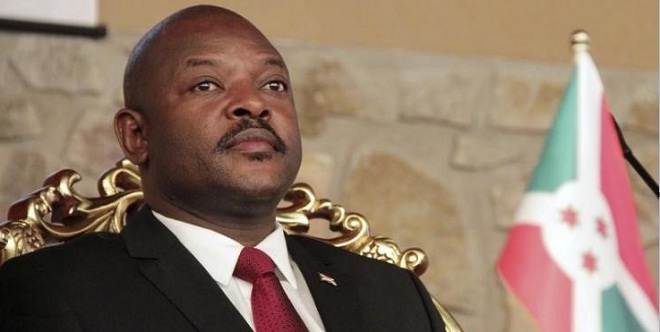
The Hague, Netherlands | AFP | International judges have given the go ahead for a full investigation into alleged crimes against humanity in Burundi, triggering anger Thursday in the crisis-torn African nation, the first ever to leave the war crimes tribunal.
The decision to probe abuses in which at least 1,200 people may have been killed was made by judges at the International Criminal Court (ICC) on October 25, just two days before Burundi quit the world’s only permanent war crimes court claiming it was biased against African nations.
But the launch of the probe was kept under seal until Thursday in a bid to help protect victims and potential witnesses.
Welcoming the move, chief prosecutor Fatou Bensouda vowed a “rigorous” investigation, but warned it was just the start of “a process which will take as long as needed to gather the required evidence”.
The country in east Africa’s Great Lakes region descended into unrest and bloodletting when President Pierre Nkurunziza announced he was running for a third term in office, winning July 2015 elections which were boycotted by the opposition.
– Murder, torture, rape –
Bensouda’s preliminary probe led her to believe there had been a “deliberate attack against the civilian population, entailing multiple acts of murder, imprisonment, torture, rape and other forms of sexual violence,” she said in a statement.
Those who demonstrated against Nkurunziza as well as opposition members and journalists were among those targeted by Burundian security services, she said.
In the decision, the judges authorised her “to open an investigation regarding crimes within the jurisdiction of the court allegedly committed in Burundi … since 26 April 2015 until 26 October 2017.”
The prosecutor can also widen the probe to acts committed both before and after those dates “if certain legal requirements are met”, and could even investigate other atrocities such as suspected “genocide or war crimes”.
In a swift reaction, Burundi presidential office spokesman Willy Nyamitwe denounced the “corrupt” ICC in a series of tweets.
He accused the court of cheating because the authorisation had been “pre-dated” and said it had just “shot itself in the foot.”
“Without any doubt, Burundi will emerge the winner of this battle,” he said.
Although Burundi officially left the ICC on October 27, the ICC judges said the court “retains jurisdiction over any crime within its jurisdiction up to and including 26 October, 2017, regardless of Burundi’s withdrawal”.
As Burundi had been a member of the ICC during the period to be probed it “has a duty to cooperate with the court for the purpose of this investigation,” they stressed.
– ‘Courageous move’ –
Bensouda had opened a preliminary probe in April 2016 into reports of killings, torture and rape in the landlocked country.
And judges agreed with her findings that there was now “a reasonable basis to proceed with an investigation in relation to crimes against humanity”.
According to estimates, “at least 1,200 people were allegedly killed, thousands illegally detained, thousands reportedly tortured and hundreds disappeared”, the judges said.
“The alleged acts of violence have reportedly resulted in the displacement of 413,490 persons between April 2015 and May 2017,” they added.
The abuses were allegedly carried out by Burundian security forces in collaboration with “members of the youth wing of the ruling party known as the ‘Imbonerakure’,” they said.
Rights groups hailed what they called “a courageous decision,” warning the investigation will be “strewn with hurdles due to the regime’s violent opposition”.
“For years, the Burundian authorities have tried to hide their crimes by banning international observers and journalists,” added Karine Bonneau from the International Federation for Human Rights.
According to differing tolls provided by the United Nations or non-governmental organisations, the violence in Burundi has claimed between 500 and 2,000 lives, and more than 400,000 Burundians have fled abroad.
 The Independent Uganda: You get the Truth we Pay the Price
The Independent Uganda: You get the Truth we Pay the Price





